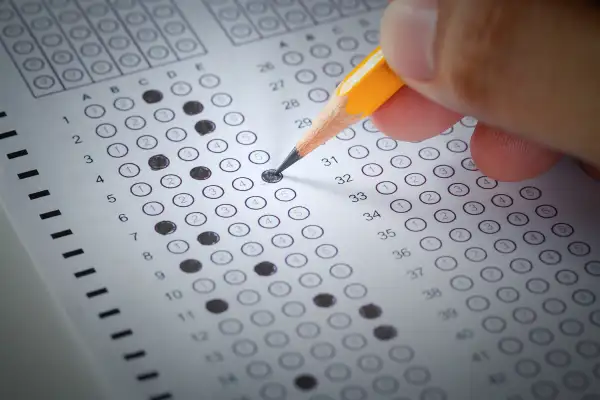Don't Pay for an Expensive SAT Tutor

For years, news stories have reported the exorbitant amounts parents are willing to shell out on prep courses for college admissions tests. In most every one, critics of the test prep industry have questioned the worth of those high-priced courses.
Now, a 10-year veteran of the test prep industry is joining ranks with the critics.
In a column for Vox, Anthony-James Green says that after several years of charging hundreds of dollars for one-on-one SAT tutoring—and even $1,000 an hour at his peak—he retired his one-on-one sessions. Why? Because he'd found that clients who were paying less to simply use his lesson materials online were outperforming those students who were paying top dollar to the "SAT tutor to the 1%," as he was dubbed. He writes:
The results I was getting were impressive not because I sat with the kids, and not because of my magical teaching abilities, but simply because I'd figured out a rigorous and tested study plan, and I was forcing my kids to work through at least a portion of it.
When you removed me from the equation, the lesson plans and strategies stood on their own. There were no missed sessions, no forgotten assignments, and no excuses. You either did the work or you didn't — and the kids who did do the work got the predictably good results that any devoted, consistent course of self-study would provide.
The overall takeaway? Don't throw down loads of cash on a pricey tutor, especially if your son or daughter is already a strong student, because the same, or even better, results are achievable on your own with quality study materials.
Green writes that he's tutored students who improved their scores by more than 400 points, but studies have shown that test prep generally has a much smaller effect on scores, about 30 to 40 points.
The Vox piece may be welcome news to parents debating whether and how much they should spend to help a child score as high as possible on the SAT or ACT. The issue is especially up for debate now that the College Board, which makes the SAT, and online education company Khan Academy have co-produced an interactive online SAT practice program that anyone can use for free.
(MORE: How to Get into College)
But Green's confession about the value of his one-on-one tutoring likely won't have too great of an effect on the profits of the multi-billion dollar test prep industry. Neither will the free official SAT practice site, some argue.
That's because all parents—and especially those whose children attend competitive prep schools where expensive SAT courses are routine—want to do whatever they can to give their child a leg up in the college admissions process. So if a parent can afford $500 per-hour private coaching that might give her son a competitive edge, she'll pay for it because other parents will pay for it -- and because she wants the peace of mind that she did everything she could to help her child get into his or her dream school.